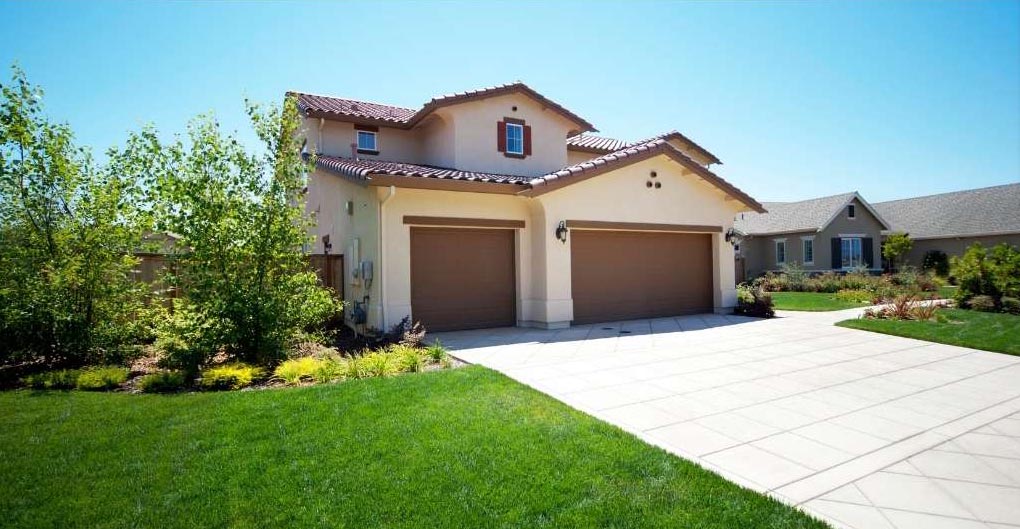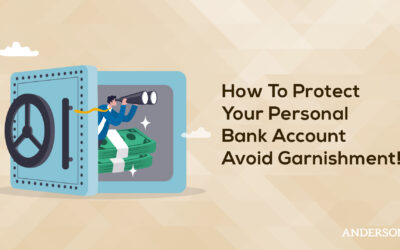In 2020, the national average home price was $389,400. This amount varies state by state, with the lowest being West Virginia at $107,927. But what if you want to buy a home in Hawaii, California, or Massachusetts, where home prices are three to five times that amount? In those cases, you might need a special type of home mortgage called a jumbo loan.
Pros and Cons of a Jumbo Mortgage:
PROS:
- Higher Loan Limits
- One Single Loan
- Lower Down Payment
CONS:
- Higher Interest
- Need a Clean Credit Score
- More Closing Costs
- Not All Properties Qualify
There are a significant number of homebuyers who purchase their residence with cash on the spot. In fact, roughly 30 percent of homebuyers in 2020 paid for their home in full, this is up six percent from the year before and a high since 2014.
However, as you can see with a quick calculation, that means even in years when cash is king and money talks (as they say), the vast majority of homebuyers turn to home financing in order to purchase their residence.
For many homebuyers, having six figures in cash on hand is not possible. For others, they would prefer to hold on to their cash and/or keep it growing in a retirement account rather than spend it all on their residence. Their hope is, obviously, that the home value and the stock market will outpace inflation and the interest on their monthly mortgage payment. Generally speaking, this scenario is very likely because home mortgage interest rates tend to be in the single digits. For this reason, many American consumers are not reticent about going to the bank and speaking with a mortgage loan officer.
The process for getting a home mortgage starts with the bank checking the creditworthiness of the borrower. They will analyze a number of factors, including credit score, debt to income ratio, employment history, among others (though they are barred from factoring in demographic information, like race or gender). The bank will also want an appraisal conducted on the property to make sure that the asking price is not higher than the actual value of the home. Extending a loan is a credit risk, and the bank will want to minimize that risk by only loaning the amount of money that the home is actually worth. If there is a gap between the asking price and the loan amount that the bank is willing to offer, the buyer will have to bridge the gap or work out a new deal with the seller.
What is a Jumbo Loan?
A jumbo loan, also called a non-conforming loan, exceeds the loan limits set by Fannie Mae (FNMA) and Freddie Mac (FMCC). As we enter 2022, the conforming loan limits (also called CLL) set by the Federal Housing Finance Agency that oversees Fannie and Freddie is $647,200, a nearly six-figure increase from the loan limits in 2020. These loan limits do vary state by state, and more specifically, area by area.
For example, while the conforming loan limit was $548,250 for 2021, it was as much as $822,375 in high-cost housing markets, like the San Francisco Bay Area or Manhattan. In some areas, it may be even greater, though these are generally exceptions to the rule.
To give a little history, the Federal Housing Finance Agency set up Fannie Mae and Freddie Mac to purchase loans from the financial institutions that lent them to consumers buying homes. Fannie and Freddie, as government-sponsored enterprises (GSE), repackage these loans and sell them to other investors as mortgage-backed securities (MBS). If you’re wondering why all this is necessary and why the government would want to participate, it’s because it mitigates the credit risk for the bank. If the homebuyer defaults on their loan, the bank will be able to recoup their losses from the government. This makes the bank more willing to extend home loans to creditworthy buyers.
But even so, some home loans are just too big for Uncle Sam to get involved. Home loans in the range of seven figures are too much to secure in this way. Moreover, since the vast majority of home purchases are not going to rise to that amount, there is not much need for Fannie and Freddie to stabilize the housing market by backing such mortgages. That means the banks are on their own with these jumbo loans—so they are going to be a lot stricter about which homebuyers can get them.
How Much is a Jumbo Loan?
Jumbo loan limits can vary from county to county, even within a state. California is known to have some of the hottest real estate markets in the country. Alameda, Los Angeles, and Santa Cruz counties all have upper loan limits of $822,375. But other parts of California, such as Fresno, Humboldt, and Tulare counties have upper loan limits of $356,362.
In the state of New York, upper loan limits are also $822,375 for Bronx, Nassau, and New York counties. But in much of the rest of the state, the upper loan limits are $356,362, as they are incomparably rural parts of the Golden State.
It really all depends on the county in which you are looking to become a homebuyer. For example, while most of Wyoming has upper loan limits of $420,680, Teton County’s limits are a whopping $970,800.
Remember that a conforming mortgage is defined by these limits. A mortgage lender extending a loan type exceeding the limitations of a conventional mortgage (as defined by the federal government) can always extend more money than the limit. The limit just refers to how big a loan option can be before it becomes a non-conforming loan. That said, if a homebuyer locates a property worth several million dollars, they can apply for a jumbo home loan for that property. As it turns out, many of them will shop for a jumbo mortgage loan at the same place that everyday people shop for a home loan, including banks like Chase, Bank of America, and Wells Fargo.
Interestingly enough, since some uber-wealthy borrowers have a substantial cash reserve in place, along with other assets such as stock ownership, they can secure very favorable jumbo mortgage rates from their jumbo lender. But really, the same is true for everyday consumers. If a potential borrower shows a strong financial profile, has cash reserves, good credit, and a good income to debt ratio, then they will likely get lower interest rates as well.
It should be noted that someone taking out a jumbo loan for a high-cost area or for a large property is not going to be able to take advantage of certain federal housing programs, like the FHA loan. An FHA loan allows a buyer to put down a very minimal three percent, while the VA loan program allows borrowers to skip the down payment entirely. However, it’s likely that with the income stream and credit history required of someone taking out a jumbo loan, they wouldn’t need those benefits anyway.
Pros of Jumbo Mortgages
There are many advantages to taking out a jumbo mortgage, including:
1. Higher Loan Limits
The first obvious benefit of a jumbo loan is that they are, well…jumbo-sized. Jumbo loans can be used to purchase bigger properties in areas where the housing market reflects higher average home prices. For homebuyers who don’t want to or can’t put down that much cash, a jumbo loan is actually a necessity for getting the property they want.
Remember that a jumbo mortgage is only for a personal residence. If you are looking for a large amount of capital for a real estate investing venture, a jumbo loan is probably not the way to go, despite its name. Rather, you should look into other financing options, like real estate crowdfunding, or other forms of private equity.
Looking for ways to create long-term wealth, be it through real estate or stock investing? Sign up for our Infinity Investing Workshop today!
2. One Single Loan
A jumbo loan is going to be a single mortgage, which beats having to collect multiple loans in order to finance a property. As it turns out, most consumer-facing banks would be reluctant to extend a mortgage if another lender is involved, since it could present conflicts in regards to collecting the collateral of the property in the case of a default. However, there is nothing that prevents wealthy homebuyers from seeking private funding for their own personal residence. But if doing so would mean having to piece together several loans from several different people, a single jumbo loan with one single monthly payment becomes a much more attractive option.
In a similar train of thought, a homeowner can also get a jumbo loan to refinance their existing debt, or as a second mortgage to fund another venture. In the case of everyday consumers, taking out a second mortgage usually implies financing a major life goal, such as funding their children’s or grandchildren’s college tuition, or (in the case of a reverse mortgage) retirement.
For an extremely wealthy individual who could pay for such large purchases using a credit card, taking out another jumbo loan may seem silly, but you’d be surprised to learn that the rich and famous actually use debt just as much as everyday consumers do to finance their life decisions. It just makes more sense because they can keep their assets and secure very low-interest rates because those same assets reduce their credit risk to a bank or lender.
3. Lower Down Payment
Conventional banks prefer when consumer borrowers put down 20 percent on a home. If they don’t, they will typically make the borrower take out a private mortgage insurance policy, which protects the lender if the borrower defaults. Thankfully for borrowers seeking a jumbo loan, they can often get away with a 10 percent or even five percent down payment on the property instead.
Part of the down payment requirement is to protect the lender from the credit risk of the buyer. With jumbo loan borrowers, the bank is going to be sure the borrower is a solid candidate for funding before extending a loan. That said, they may determine that they are willing to accept a smaller percentage of the total home cost for a down payment.
Even so, because of the high home price, the down payment is still going to be sizable. For these reasons, if a homebuyer is on the cusp of being able to afford a jumbo loan, they might factor that into their equation when determining what kind of property they’d like to buy.
Cons of Jumbo Mortgages
While jumbo loans can be beneficial for homebuyers in high-cost areas, there are a few drawbacks as well:
1. Higher Interest
Jumbo loans are still a significant credit risk, not only because the loan amount is so high, but also because the bank cannot resell the loan to be repackaged as a mortgage-backed security. In some of these cases, the bank will make up for this credit risk by charging higher interest rates.
But there are plenty of jumbo loans that are going to have interest rates that are very comparable to those of a conventional loan. At the time of this article, a 30-year fixed jumbo mortgage carries a minimum 3.32 percent interest rate, while a 15-year fixed jumbo rate carries an even lower 2.52 percent interest rate. Remember that fixed rates do not change over time, while variable rates can fluctuate with the market.
Unfortunately, you won’t really know what a bank is willing to offer you until you meet with them in person and get the application process started because so much of the exact nature of loan rates depend on the borrower. Remember that even a few percentage points of a difference can add up to thousands of dollars over time, and in the case of jumbo mortgage rates, perhaps hundreds of thousands of dollars.
There is a lot to understand about how the different types of loan options can have different repayment structures, including interest arrangements. It’s just one of the many things you need to learn if you are leaping into real estate investing for beginners. As it relates to jumbo-sized loans for a personal residence, it’s good to shop around and see which lender can offer you the best terms and rates, just as you would for any major financial purchase.
2. Need a Clean Credit Score
You will need very good credit to obtain a jumbo loan. This is a significant amount of money being extended by a bank, and they do not want to lose it through the foreclosure process. Even if a home is high priced or a very sizable asset, banks are not in the business of selling distressed properties, so they would rather get paid on time than take ownership of the house.
If your credit score is not as high as the bank would like, you can make up for it in many cases by putting down a larger down payment. Is it possible to get a jumbo loan if you’ve had a bankruptcy in your past? It may indeed make securing a jumbo loan more difficult, but if the bankruptcy was at least seven to 10 years in your past, and have since repaired your credit and built an income stream, then it is still possible.
3. More Closing Costs
There are going to be more expensive closing costs associated with a jumbo mortgage, and this is because some closing costs are often calculated as a percentage of the total loan. Additionally, jumbo loan lenders often require cash reserves to be set aside to make the first year of monthly payments (or less). This is not a typical loan requirement, but because the loan amount is so large, banks want to hedge themselves against risk.
Incidentally, this is also a good best practice for any homebuyer. When possible, borrowers should set aside some cash in a separate checking account to automatically fund their monthly mortgage payments for the first year of living in their new home. Whether you are shopping for a jumbo loan or conventional loan, lenders will look upon this very favorably. For jumbo loans, however, proving that you have these cash reserves set aside may be a requirement.
All that to say, while there are not necessarily more closing costs than a typical home closing, because some of these closing costs (like the loan origination fee) are calculated as a percentage, the overall total of your closing costs is, of course, going to be higher.
4. Not All Properties Qualify
Not every property is going to qualify for a jumbo loan. Remember, the bank is going to want to conduct a property appraisal. If a seller is asking $1.2 million for a property, and the bank is convinced that it’s only worth $1 million, the buyer is suddenly $200k short. They will have to renegotiate with the seller or find additional financing, like a swing loan or bridge loan, to close the gap.
Jumbo loans are only for use on a personal residence. So, if you’re looking to do some real estate investing, and you’re contemplating a jumbo loan for a property, you may need to look into alternative forms of funding. Getting a jumbo loan for an investment property may have been easier 15-20 years ago, but after the subprime mortgage crisis, banks have really tightened their lending requirements to avoid a repeat of the housing bubble. Someone moving into their home presents a significantly lower credit risk than an investor looking to acquire a property they will be renting out because they have more skin in the game. If they default on the loan, they lose the roof over their head.
Jumbo Loans Help Homebuyers Purchase High-Cost Properties
A jumbo loan is a great option for homebuyers searching for an expensive home or any home in a robust housing market. Jumbo loans are aptly named because they are bigger than the conventional loan limits set by Fannie Mae and Freddie Mac. These government entities will not purchase such large loans from the banks to repackage as mortgage-backed securities, so the bank is on its own when loaning these types of mortgages. As such, they are only willing to offer jumbo loans to borrowers who can prove they have the income and cash to repay.
If you’re thinking about using a jumbo loan for an investment property, or even a personal residence, you can explore your opportunities by checking out the Anderson Funding Community. This is a one-stop-shop to find funding options for real estate funding, small business funding, and even CARES Act funding, such as PPP (Paycheck Protection Program) and EIDL loans and grants. Clients have connected with funding sources for a business line of credit, real estate loans for fixes and flips, and other types of financing options to move their investment goals forward. The goal doesn’t necessarily have to be for investments—it can also be used to secure a primary or secondary residence for yourself. Take a look at what the community can offer—you never know what connections you might make.
Bonus Video
3 Steps to Create an Invisible Investor Strategy
















